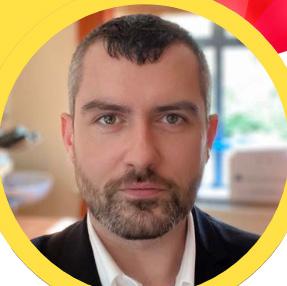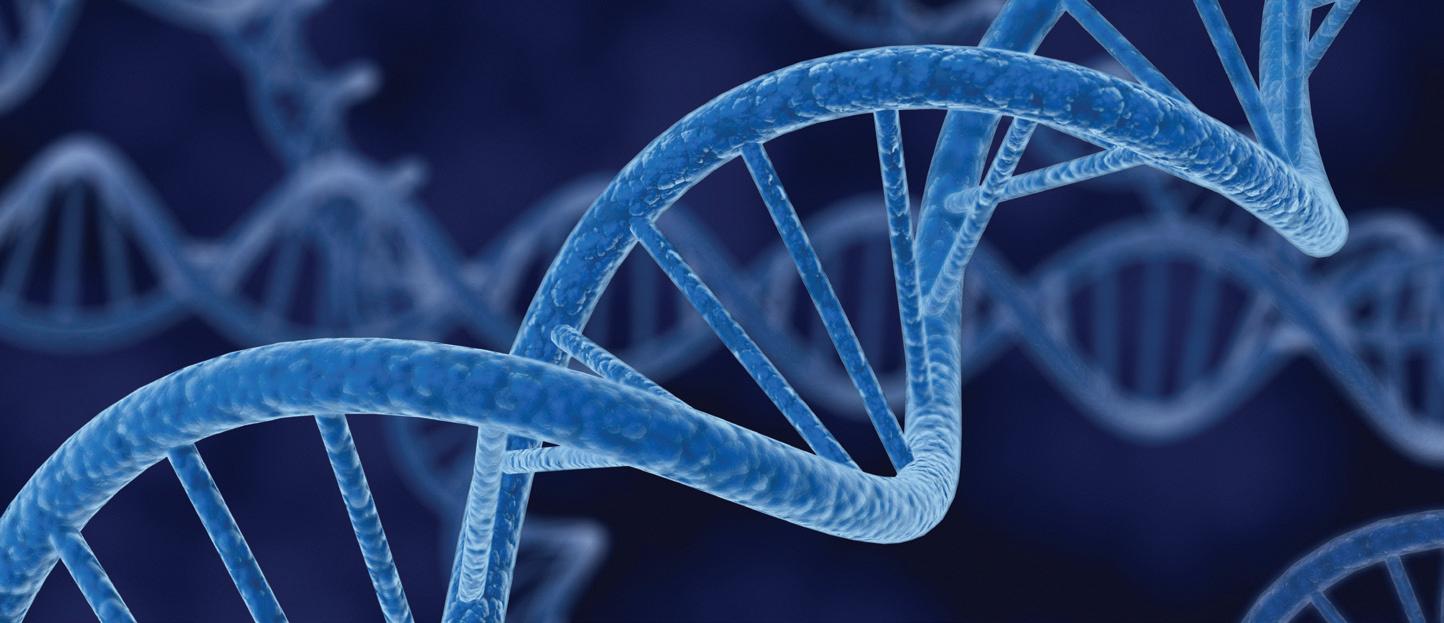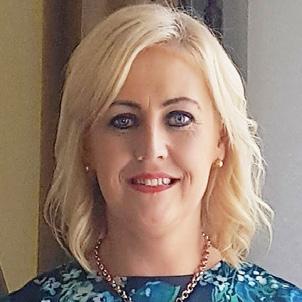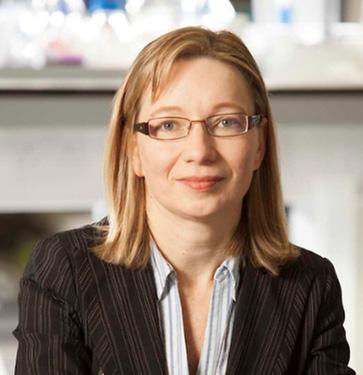Blood He alt h
Q3 2023 | A promotional supplement distributed on behalf of Mediaplanet, which takes sole responsibility for its content
“By guiding patients and including them in every step, clinical trials and support initiatives can create a greater impact.”
Su Maung
Haematology Association of Ireland Page 02
www.healthnews.ie
“Enormous advances have been made in the treatment of multiple myeloma, particularly in the past decade.”
Page 04

 Dr
,
Siobhan Glavey, Beaumont Hospital
Dr
,
Siobhan Glavey, Beaumont Hospital
Clinical trials in Ireland offer hope to improve lives of cancer patients
Regulated clinical cancer trials in Ireland have contributed to advances in blood cancers. They have promoted patient access, awareness and involvement. Clinical trials have helped over 33,500 patients since the year 2000.
Current cancer treatments are approved with evidence-based data from many clinical trials. Clinical trials in Ireland are highly regulated by Health Products Regulatory Authority (HPRA), and the clinical trial team closely monitor participating patients.

Impact of clinical trials on blood cancer
Haematology clinical trials examine new — or a combination of existing and new — therapies for newly diagnosed and relapsed patients with blood cancers. There are several clinical trials ongoing in Ireland for patients with lymphoma, CLL, acute leukaemia, multiple myeloma and myeloproliferative neoplasms.
Translational studies examine disease markers for diagnostic and prognostic information. Other translational studies examine nonpharmacological interventions for improving comfort and quality of life in cancer patients. For example, Sleepio After Cancer Study (SACS) is recruiting women with current or prior cancer diagnoses who have difficulty sleeping.

Clinical trials helping patients in Ireland
Cancer Trials Ireland is a registered charity and the leading cancer research trials organisation in Ireland. It aims to provide every patient with access to high-quality and potentially life-altering cancer trials and to make Ireland an attractive location to open cancer trials.
Since 2000, 623 cancer trials have opened in Ireland, with over 33,500 patients taking part. In 2022, a survey of public attitudes revealed that three in five people in Ireland would take part in a clinical trial. The Charity is partly funded by the Health Research Board and
the Irish Cancer Society. It also receives income from pharmaceutical companies and international research groups, as well as through philanthropic giving and donations from members of the public.
Giving patients power over their journeys
Cancer Trials Ireland also promotes public awareness and understanding of clinical trials through ‘Just Ask’ campaigns. The Patient Consultants Committee (PCC) is a sub-group of the Charity and focuses on public and patient involvement in clinical trials. This patient group contributes to the delivery and design of clinical trial activities.
In addition, educational events for individual disease areas within Haematology deliver information and support to targeted groups of patients, families and carers.
Patient information days for Myeloproliferative neoplasms (MPN), Chronic Lymphocytic Leukaemia (CLL) and Lymphoma are hosted annually at different locations around Ireland.
By guiding patients and including them in every step, clinical trials and support initiatives can create a greater impact. This can help improve the lives of more patients and their families.

02 READ MORE AT HEALTHNEWS.IE AN INDEPENDENT SUPPLEMENT FROM MEDIAPLANET WHO TAKE SOLE RESPONSIBILITY FOR ITS CONTENT MEDIAPLANET
Country Manager IE: Ross Bannatyne Managing Director: Alex Williams | Head of Print & Design: Thomas Kent Designer: Aimee Rayment Content Editor: Angelica Hackett O’Toole | Head of Digital Operations: Harvey O’Donnell Paid Media Manager: Jonni Asfaha Social & Web Editor: Henry Phillips Digital Assistant: Carolina Galbraith Duarte All images supplied by Gettyimages, unless otherwise specified @healthnewsIE Contact information: uk.info@mediaplanet.com or +44 (0) 203 642 0737 @MediaplanetUK Please recycle Dr Su Maung Consultant Haematologist, Secretary/Treasurer, Haematology Association of Ireland Consultant Haematologist, Mater Misericordiae University Hospital, Dublin IN THIS ISSUE Navigating complex care: role of advanced nurse practitioners in RRMM management Ger Walpole Advanced Nurse Practitioner in Haematology, Sligo University Hospital & Chairperson of Multiple Myeloma Ireland Page 05 What it’s like to live with PNH — and how to make treatment more accessible Dr
TCD
Consultant Haematologist in St James’s Hospital and Coombe Hospital Page
New approved therapies and clinical trials for the treatment of haemophilia Brian
Society
Catherine Flynn
Associate Clinical Professor,
07
O’Mahony Chief Executive, Irish Haemophilia
Page 08
In 2022, a survey of public attitudes revealed that three in five people in Ireland would take part in a clinical trial.
WRITTEN BY James Martin
Bispe cific antibodies: a new tool in fighting blood cancers
Patients with difficult-to-treat blood cancers that are not responding to first-line therapies are starting to benefit from new targeted treatments.
Some patients suffering from certain types of blood cancer find their disease progressing even after multiple lines of therapy. Patients who go through the intense toxic effects of treatments like chemotherapy and radiotherapy may find they work initially, but the disease comes back (relapsed) or they do not respond at all (refractory). These tough-to-treat areas include relapsed/refractory blood cancers, such as diffuse large B-cell lymphoma, follicular lymphoma, as well as leukaemia and myeloma. However, recent breakthroughs have led to new treatment options for these patients that harness the body’s own immune system to fight the cancer. One promising example of this kind of treatment is bispecific antibodies.
Bispecific antibodies as effective immunotherapy
The body’s immune system produces antibodies to protect against infections by tagging bacteria and viruses for destruction by immune cells. Bispecific antibodies are engineered by scientists to attack diseased cells, such as cancer cells. Bispecific antibodies have two different targets on the same molecule: one sticks to the blood cancer cells and the other sticks to the patient’s immune cells, thereby binding them together and harnessing the patient’s own immune system to attack the cancer cells.
Dr Robert Henderson, who has experience administering bispecific antibodies to patients at St James’s Hospital Dublin, insists: “There is encouraging evidence that these drugs work even after a number of lines of therapy have failed; even some complete remissions.”

Treatment process and side effects
Dr Henderson explains: “It’s vital that when patients relapse, we treat them promptly because these diseases can accelerate quite quickly.” Patients are initially administered low doses that are gradually increased in the hospital over the first few days to monitor for side effects. They are then able to go home and continue treatment as outpatients every few weeks.
Patients are monitored for side effects, including inflammatory reactions and neurological side effects. However, Dr Eoghan Molloy, Consultant Haematologist at Cork University Hospital, asserts that the side effects are manageable. “As a doctor treating patients with

lymphoma, I have witnessed patients achieving a much-improved quality of life, with far fewer side effects than with chemotherapy,” he says.
Applications to achieve improved remission
Dr Henderson describes the treatment as ‘a great tool’ in fighting blood cancers but says: “More broadly, trials are being conducted to explore whether they work better in earlier phases in fighting diseases. Will they be used earlier on to get people cured without relapsing or needing other therapies later on? Could they work alongside — or instead of — chemotherapy; and will that achieve better remissions?” He hopes that bispecific antibodies could allow more patients to get a remission first time.
Development of blood cancer treatments
Dr Henderson charts the progress in treating blood cancers over the past 30 years as evidence that progress can be rapid. “In the past, it was chemotherapy regimes alone. Then, monoclonal antibodies — which bind targets on cancer cells and destroy them — were added to regimes and now form the bread and butter for many B-cell lymphoma treatments. Bispecific antibodies represent the next step in this arm of immunotherapy.
“Many relapsed patients ultimately require a bone marrow transplant or CAR-T (chimeric antigen receptor T cells). CAR-T differs from bispecific antibodies; they are genetically engineered to create cells with a receptor that targets cancer cells and kills them. They have shown promising results, however, one challenge is that the engineering part takes a few weeks. Bispecifics can be available immediately and could bridge patients to these therapies.”
Access to more treatment options
Bispecific antibodies provide an ‘off-the-shelf’ option that engages the body’s natural defences to recognise and eliminate cancer cells, potentially giving patients with a high risk of relapse access to more treatment options. Furthermore, as researchers continue to explore the use of bispecifics in combination with other drugs, there is hope for improved efficacy for patients throughout the treatment journey.
Sponsored by Roche

M-IE-00001629
September 23
MEDIAPLANET READ MORE AT HEALTHNEWS.IE 03 AN INDEPENDENT SUPPLEMENT FROM MEDIAPLANET WHO TAKE SOLE RESPONSIBILITY FOR ITS CONTENT
To learn more about Roche, visit roche.ie
Dr Rob Henderson Consultant Haematologist, St James’s Hospital
Dr Eoghan Molloy Consultant Haematologist, Cork University Hospital
Bispecific antibodies represent the next step in this arm of immunotherapy.
The primary discussion mentioned in this article is with reference to DLBCL.
Relapsed myeloma: treatment options and how to find the best one
Multiple myeloma (MM) is a blood cancer that affects the immune system, blood counts and bones and can lead to significant disability and distress for patients. Nearly all patients experience relapse, but there are treatment options that can help.
Enormous advances have been made in the treatment of multiple myeloma, particularly in the past decade. However, it remains incurable in the long term. This means that patients require close monitoring after the initial disease has been successfully treated (remission) and will require further treatment once the disease comes back (relapse).
received and which therapies have shown to be most effective in clinical trials. Indeed, clinical trials form an important part of treatment for relapsed MM patients as they offer the patient the best available treatment for the disease; and often, these treatments are not available outside of clinical trials.
Siobhan Glavey Consultant Haematologist, Beaumont RCSI Cancer Centre

Finding treatment for relapsed myeloma
A number of factors will influence which treatment is suitable for a patient when the disease relapses. In most cases, treatment will be somewhat personalised to that patient, ensuring that they get the most suitable drug(s) for them at the right time.
Patient factors that influence treatment choice include age, general health, other diseases (eg. cardiac disease, diabetes) and side effects from previous treatment (eg. neuropathy). Disease factors include how long it has been since the last treatment (remission duration) and how aggressively the disease is behaving. For example, at relapse, some patients may require dialysis for kidney failure or radiation to treat bone or spinal fractures.
Drugs and clinical trials offering treatment
The drugs chosen to treat MM at relapse will also depend on side effects, previous drugs the patient may have
The categories of drugs available in Ireland to MM patients include a combination of immunomodulatory drugs (pomalidomide, lenalidomide), proteasome inhibitors (bortezomib, carfilzomib, ixazomib), monoclonal antibodies (daratumumab, isatuximab) and traditional chemotherapy agents like cyclophosphamide.
Newer categories of drugs include bispecific antibodies (teclistamab, elranatamab) and antibody-drug conjugates (belantamab mafodotin) are currently only available in Ireland in clinical trials. These therapies offer patients a chance to receive a completely new class of drug for their disease and have resulted in excellent remission rates in clinical trials.
Trialling cellular therapies for multiple myeloma
The development of cellular therapies such as CAR-T cells for MM has also produced unprecedented results for patients in terms of reducing — or completely removing — all traces of MM. These are also currently still undergoing clinical trials.


TRANSFORMING THE LANGUAGE OF LIFE INTO VITAL MEDICINES
04 READ MORE AT HEALTHNEWS.IE AN INDEPENDENT SUPPLEMENT FROM MEDIAPLANET WHO TAKE SOLE RESPONSIBILITY FOR ITS CONTENT MEDIAPLANET
Treatment will be somewhat personalised to that patient, ensuring that they get the most suitable drug(s) for them at the right time.
Ger Walpole Advanced Nurse Practitioner
 University
University
Navigating complex care: role of advanced nurse practitioners in RRMM management

Relapsed Refractory Multiple Myeloma (RRMM) presents a multifaceted and challenging scenario for healthcare professionals involved in the care and management of these patients.
The landscape of RRMM treatment is continually evolving, with emerging therapies and clinical trials offering great hope to patients. However, they also come with specific individualised side effects and management concerns.
Guidance and optimising treatment for myeloma patients
The increasing number of haematology advanced nurse practitioners and nurse specialists have demonstrated that they are pivotal in the management of patients by providing appropriate and holistic care and support. They play a critical role in educating patients regarding the nature of relapse, the available therapeutic options and potential side effects.
Specialist nurses who are consistently seeing these patients — often in nurse-led clinics — are suitably placed to provide clinical expertise and compassionate care, as well as advocate for the patients within the broader multidisciplinary team to ensure they receive optimal treatment at the most appropriate time.
Side effect management and emotional support
Monitoring of side effects and
How myeloma patients can live better lives with emerging treatments
response to treatment is a vital part of the care of these complex patients who, very often, have many other health issues and complications from previous treatments. Patients being monitored and managed closely by nurse specialists benefit from better side effect management and tend to tolerate treatment better and remain on it for longer. They also provide vital emotional support to patients and their families and link them with appropriate counselling and support services, such as the Irish charity Multiple Myeloma Ireland (MMI).
Accessible multiple myeloma care information
MMI focuses exclusively on supporting patients, families and carers with multiple myeloma and other related conditions. This registered charity provides patient information days and facilitates support groups around the country. Its website contains a wealth of information in many formats including a comprehensive library of podcasts addressing all aspects of myeloma care which has proven to be a very valuable resource to myeloma patients.
Kamal Fadalla Consultant Haematologist, UCD Associate Clinical Professor, St Vincent’s University Hospital and University College Dublin

Treatments for the blood cancer myeloma are emerging, with many at the final stages of clinical trials. Myeloma treatment aims to either bring patients into remission or manage its effects to improve their quality of life.
Multiple myeloma is caused by abnormal cells called plasma cells. Currently, myeloma patients are continuously monitored and undergo treatment throughout their lives. However, many new treatments are emerging. The two main ones are chimeric antigen receptor T-cell (CAR-T cell) therapy and bispecific antibodies.
Modern myeloma treatment
CAR-T-cell therapy is a new modality of treatment that harnesses genetic engineering. We collect immune cells from the patients (T-cells), and through genetic engineering, we insert receptors into those cells and re-infuse them back to patients. These genetically modified cells circulate in the blood to identify abnormal plasma cells and then stimulate the immune system to kill these plasma cells.
A new group of medicines, called bispecific antibodies, is also emerging. It is a ready-made medicine infused to the patient. Similarly to CAR-T-cells, it identifies plasma cells and stimulates the host’s immune system to get rid of them.
Unmet needs for myeloma
Despite advances in myeloma treatment, there are still unmet needs, including:

• Lack of a cure. However, with improved treatment, or combined treatments, it might be achieved in the near future.
• Reducing the toxicity of treatment (especially stem cell transplant), which many patients cannot tolerate.
• Improving survival rates for young patients, as prolonging life by 8–12 years is not sufficient for many patients.
• Reducing treatment time, as almost all myeloma patients require continuous treatment, which negatively impacts their quality of life.
• Treatment for elderly, frail patients who may not tolerate the same treatment as younger patients.
If these unmet needs are addressed as promising treatments advance, patients with myeloma could live longer, healthier lives.
For more information about Amgen, our pioneering science and our vital medicines, visit www.amgen.co.uk
MEDIAPLANET READ MORE AT HEALTHNEWS.IE 05 AN INDEPENDENT SUPPLEMENT FROM MEDIAPLANET WHO TAKE SOLE RESPONSIBILITY FOR ITS CONTENT
in Haematology, Sligo
Hospital & Chairperson of Multiple Myeloma Ireland
At Amgen, we believe that the answers to medicine’s most pressing questions are written in the language of our DNA. As pioneers in biotechnology, we use our deep understanding of that language to create vital medicines that address the unmet needs of patients fighting serious illness – to dramatically improve their lives.
©2023 Amgen Inc. All rights reserved. IRL-NP-0823-80004. August 2023. Learn more at multiplemyelomaireland.org
Cellular immunotherapy approaches that are showing promise in research labs
Recent research shows that our own immune system may be used to fight cancer. This approach, immunotherapy, can be tailored to patients and is capable of adapting; as the cancer changes, the immune cells can adapt.
Chemotherapy is the mainstream treatment for many blood cancers. Despite its efficacy in eliminating the bulk of the cancer, its ‘one-size fits all’ nature, severe side effects and frequent disease relapse are major issues.
















Types of cellular immunotherapy
Chimeric antigen receptor T-cell (CAR-T) therapy is a form of cellular immunotherapy. For CAR-T therapy, the immune system’s T-cells are collected from the patient’s blood and modified to recognise and attack the patient’s cancer cells. While many CAR-T therapies are being tested for clinical use, research in Blood Cancer Network Ireland (BCNI) and other laboratories investigate the use of another immune cell type — known as natural killer (NK)
NK cells can also be modified to recognise a specific marker present in cancer cells (CAR-NK cells). And while CAR-T cells recognise a single target molecule on cancer cells, CAR-NK cells can identify cancerous cells via a range of receptors.
More adaptable ‘live’ treatment option






NK cells act as ‘living drugs.’ Unlike CAR-T cells, they can be from any donor. After being isolated from healthy donors, NK cells are then genetically engineered (to become CAR-NK cells) and processed for cancer treatment.
Eva Szegezdi, Director of BCNI at the University of Galway, explains: “The drugs currently used for blood cancers have serious side effects as they also kill healthy cells. These drugs also get eliminated from the body very quickly. On the other hand, live immune cells are adaptable and can persist for a long time.”

Genetic engineering of immune cells by BCNI is focused on generating therapeutic CAR-NK cells, which can eliminate cancerous cells — without affecting healthy ones. “Currently, we test these NK cells on biobanked patient samples. When we progress further, we will engage in clinical trials.” She expects the first trial in Ireland to include 20 or 30 patients. “If that is successful, it will probably become an international trial.”
Potential for improved cancer treatments
With these findings and trials ongoing, patients in Ireland could potentially have access to more targeted treatment options, alongside traditional chemotherapy treatment.
06 READ MORE AT HEALTHNEWS.IE AN INDEPENDENT SUPPLEMENT FROM MEDIAPLANET WHO TAKE SOLE RESPONSIBILITY FOR ITS CONTENT MEDIAPLANET
Eva Szegezdi Associate Professor in Biochemistry Director, Blood Cancer Network Ireland Co-ordinator INTEGRATE Doctorate Programme in Integrative Genomics University of Galway, Ireland
The drugs currently used for blood cancers have serious side effects as they also kill healthy cells.
After being Isolated from healthy donors, NK cells are then genetically engineered (to become CAR-NK cells) and processed for cancer treatment.
Paroxysmal nocturnal haemoglobinuria (PNH) is a rare, life-threatening blood disorder affecting young patients with an average age of 40 years at diagnosis. Men and women are equally affected.
There are over 50 patients living with PNH in Ireland. Patients can present with severe fatigue related to anaemia (low haemoglobin), infections or bleeding symptoms caused by bone marrow failure. They may also present with blood clots.
Dr Catherine Flynn Consultant Haematologist, TCD Associate Clinical Professor, St James’s Hospital and Coombe Hospital

Cause and effect of paroxysmal nocturnal haemoglobinuria
PNH is caused by the acquisition of a mutation in the PIGA gene in blood stem cells, resulting in mature blood cells losing proteins that protect them from the complement system. The consequences are continuous destruction of red cells in circulation, causing anaemia, and jaundice. Diagnosis can be difficult as anaemia, jaundice and blood thrombosis (clotting) can be caused by many conditions. Once the diagnosis is considered, however, a haematologist can arrange a specific blood test to confirm the diagnosis.
Classic PNH and other blood diseases
PNH can overlap with other blood conditions, including autoimmune or inherited bone marrow failure syndromes and myelodysplasia. Optimal treatment pathways will depend on a careful investigation of an individual’s blood and bone marrow. Those with ‘classic’ PNH with red cell breakdown, jaundice and, sometimes, thrombosis need urgent consideration for anti-complement medication.
Eculizumab is the only anti-complement therapy available in Ireland outside of a clinical trial and is extremely expensive. It is accessed through the National Centre for Pharmacoeconomics (NCPE), but there are strict criteria to be met prior to approval.
New, expensive drugs making a difference
During 2011 and 2016, studies demonstrated that eculizumab treatment has increased the five-year survival for PNH patients to >90%, revolutionising the outcome for PNH patients. Previously, one-third of patients would not survive more than five years from diagnosis due to complications. Eculizumab infusions are considered lifelong treatments, administered at home every two weeks.
Treatment does not mean cure
While complement inhibitor treatment improves survival, it is not a cure. Patients require lifelong monitoring. Intravenous eculizumab
is time-consuming for patients and often inconvenient. Frequent medical visits are required for treatment of associated infections, regular vaccination and monitoring for silent clotting and associated heart, lung, liver and kidney disease. Moreover, PNH can evolve into other blood conditions, and continued surveillance is required.
Emerging treatment options for PNH
Access to eculizumab is not easy in Ireland due to cost and the strict criteria used to determine patient eligibility. However, many new complement-blocking treatments are on the horizon for Irish patients. These include biosimilar preparations of eculizumab — which are less expensive — and longer-acting preparations such as ravulizumab — which can be given every eight weeks, giving patients more freedom.
A self-administrated complement inhibitor is in the clinical trial phase (Commodore-1) and is actively recruiting Irish PNH patients who are still anaemic on eculizumab. This medicine hopes to allow more independence for patients, as it only requires administration every four weeks. Newer agents, which inhibit the complement pathway at different points, are going through the approval processes of the NCPE and are sometimes available in exceptional cases.
What’s the price of living a normal life?
For Irish patients with this chronic rare condition, the only curative treatment is a bone marrow transplant — a procedure carrying significant risk. For most patients and haematologists, it is a last resort.
Many patients who live with this chronic condition seek a long-term solution, which will allow them to live comfortably. The approval pathway for new drugs is challenging, and these new medications are all costly. Our healthcare system continues to face the economic challenges of expensive medications, and haematologists continue to advocate for our PNH patients who want to live a ‘normal’ life.
MEDIAPLANET READ MORE AT HEALTHNEWS.IE 07 AN INDEPENDENT SUPPLEMENT FROM MEDIAPLANET WHO TAKE SOLE RESPONSIBILITY FOR ITS CONTENT
What it’s like to live with PNH — and how to make treatment more accessible
Optimal treatment pathways will depend on a careful investigation of an individual’s blood and bone marrow.
New approved therapies and clinical trials for the treatment of haemophilia
Innovation in haemophilia treatment has increased exponentially in recent years with new approaches, new therapies and several ongoing clinical trials.
Since the 1970s, the standard therapies for haemophilia were intravenous injections of the missing clotting factor — factor VIII (FVIII) for haemophilia A and factor IX (FIX) for haemophilia
B. These were typically infused two to three times per week to maintain a base or trough factor level and prevent most spontaneous bleeding. In Ireland, since the late 1990s, these were recombinant or synthetic products.
Progression of haemophilia therapies
In 2014, a new generation of extended half-life recombinant factor concentrates became available. This allowed for less frequent infusion or greater protection (or both, in FIX cases). For individuals with severe FVIII deficiency, treatment was required twice weekly. In FIX deficiency, treatment was required once per week or even once every two weeks due to the longer half-life of the infused FIX in the body.
Brian O’Mahony Chief Executive, Irish Haemophilia Society

Subcutaneous therapies
Novel approaches targeted the other side of the coagulation cascade. Instead of merely replacing the missing factor through infusion, a new category of therapies emerged, known as rebalancing agents. They are subcutaneous therapies aiming to inhibit or reduce the impact of naturally occurring anticoagulants, such as antithrombin, anti-tissue factor pathway inhibitor (TFPI) or protein C. These therapies allow the blood to clot as required.
Several such products are currently in advanced stages of clinical trials; one is already licensed in Canada for some indications. The first FVIII mimetic was licensed in 2018 and is now widely used in Ireland. This is a subcutaneous therapy, which can be used weekly or every two to four weeks.
Gene therapies for haemophilia
In the last year, the first licensed gene therapies for both FVIII and FIX deficiencies were introduced. These new therapies use an adeno-associated virus (AAV) vector to deliver a FVIII or modified FIX gene to the liver where the liver cells start producing FVIII or FIX, respectively. The durability of these therapies is unknown but postulated to be at least five to seven years for FVIII and at least 10 years for FIX. These therapies have been a positive step forward for haemophilia patients.

08 READ MORE AT HEALTHNEWS.IE AN INDEPENDENT SUPPLEMENT FROM MEDIAPLANET WHO TAKE SOLE RESPONSIBILITY FOR ITS CONTENT MEDIAPLANET
Since the 1970s, the standard therapies for haemophilia were intravenous injections of the missing clotting factor.
In the last year, the first licenced gene therapies for both FVIII and FIX deficiencies were introduced.

 Dr
,
Siobhan Glavey, Beaumont Hospital
Dr
,
Siobhan Glavey, Beaumont Hospital










 University
University











